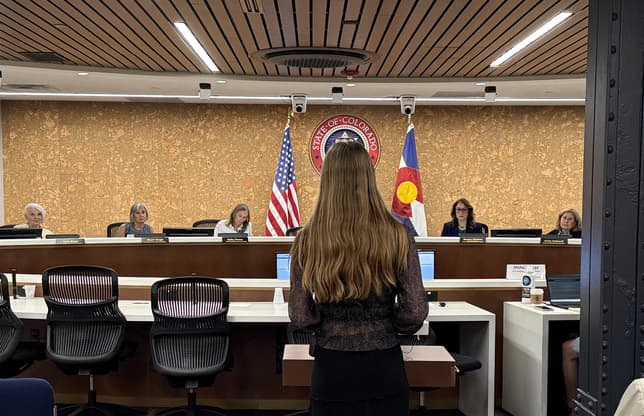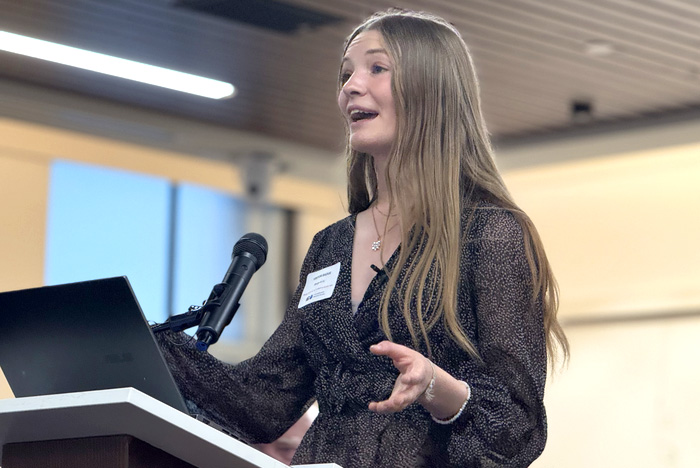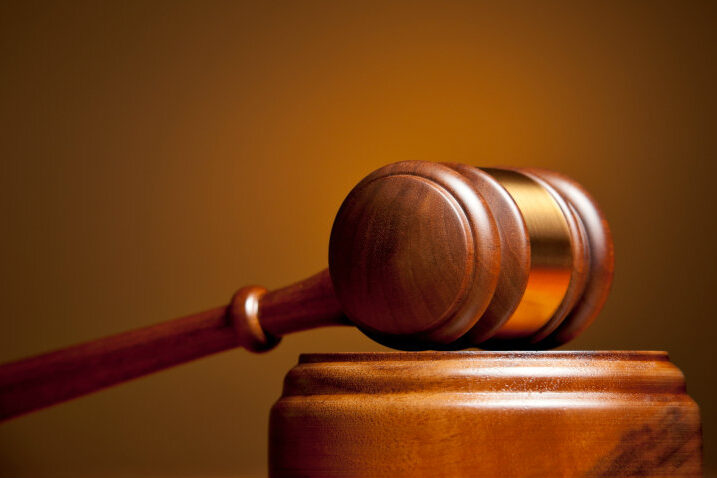
The state board of education Thursday voted to change how students learn about climate change, jettisoning a couple of proposals that sharpened the connection between burning fossil fuels and rising global temperatures in the state’s science standards in favor of more broad language.
Still, the revised standards approved by the board maintain at least a few references to burning fossil fuels and greenhouse gases, while ensuring that students can also study the downsides of renewable energy like how to get rid of electric vehicle batteries.
The update to the state's science standards happens every six years. Academic standards tell schools what students should know, and school districts then create their own lessons based on them.
The board’s lengthy discussion reflects how a topic the scientific community agrees on — that human activities cause global warming — can become political outside of scientific circles.
For the last year, a student group called the Good Trouble Climate Network worked with the state department of education to include more information about climate change in the updated science standards. Student Brynn Makros spoke to the board in November, and told them she was never taught about climate change in her high school.
"We need to reevaluate our core curriculum now when we still have the chance," she said.
The state education department suggested eight small changes to the standards based on student input and after reviewing academic standards on climate change from other states and a national NOAA climate literacy guide.
One of the proposed changes would have had students specifically investigate how burning fossil fuels and other factors release greenhouse gases that raise global temperatures. Republican board members objected.
Board member Kristi Burton Brown said that many people who submitted public feedback felt the standards were too focused on fossil fuels. Another board member, Sherri Wright, asked, "Where would we be without fossil fuels today?"
Burton Brown proposed an amendment to the proposed revisions. The new language would have students learn about the effects of all types of energy use, including “asking questions and gathering evidence on the causes of changing global temperatures, including human factors and natural cycles.” That amendment to strike proposed language about fossil fuels and greenhouse gases passed. Her change also added a focus on problems with renewable energy, such as "manufacturing and mining of materials in renewable energy and waste management."
In a second motion, instead of students evaluating and refining a technological solution that reduces greenhouse gas emissions and other human pollutants, students could evaluate a technological solution that “reduces energy production impacts and defend the solution or propose an alternative with evidence that considers the impact on natural systems, the economic and societal cost, global human rights issues, waste management, and long-term effects.”
“I think it's putting the option for our students rather than our teachers,” said Burton Brown.
Still, references to fossil fuel combustion were maintained in a “clarifying statement” after the description of examples of data that students could use, along with “manufacturing and mining of materials used in renewable energy.”
A lengthy debate
In early board meetings, Republican members argued that wind turbines kill birds and that students should look at the downsides of all forms of energy.
On Thursday, board member Karla Esser pointed out that what mostly kills birds is domestic cats and dogs followed by windows.
“I want to make sure we're looking at science and not political interpretations of the science that is far more important to me.”
Board member Steven Durham accused science teachers of scaring students.
“Somebody out there has somehow convinced these kids that the world is near coming to an end.”
Board member Kathy Plomer disagreed. She said that the standards encourage students to observe and explore their world.
"We know we're seeing drought. We know we're seeing wildfires," she said. "If we are ignoring what students are hearing every single day, what does that say about our education?"
Still, she and some students are heartened that the really important stuff in the standards – the grade level expectations for older students need to know remains: directing students to understand that human activities affect global warming.

“Students can ask questions and learn about the effects of all forms of energy,” said Plomer, who voted against one of the amendments. “They can ask questions and gather evidence on the causes of changing global temperatures, including human factors so to me, if you do it right, you're going to talk about it (burning fossil fuels) and if I think the grade level expectations spell out that we're talking about global warming.”
Aisha O’Neil, founder of the student climate group said she was disappointed that all the original suggestions weren’t accepted. But she’s still hopeful.
“They are not perfect,” she said. “Yet they do add an emphasis on climate change — one of the most pressing issues for students today — to the standards. If the curriculum that comes out of these standards is balanced and based on fact instead of partisanship, students have the potential to critically evaluate the information they hear on the news and in the media.”
She also said she was excited the board worked on alternatives to the wording in a bipartisan fashion.
“It proves that student voices have power; power to raise issues that go beyond even party lines.”
Schools have two years to put the new standards into place.









